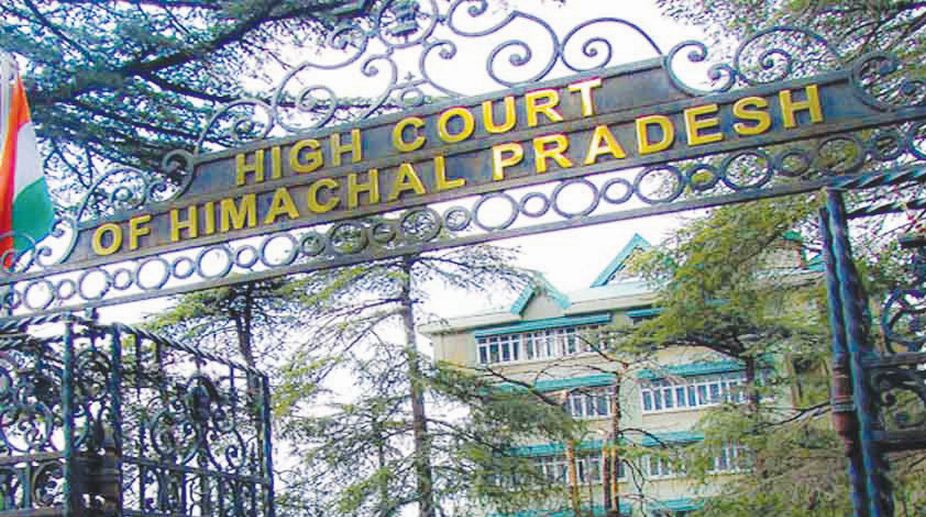The Himachal Pradesh High Court has held that a writ petition would be non-maintainable against an order paased by Arbitral Tribunal.

The single-judge bench of Justice Satyen Vaidya while adjudicating upon one such petition against an order rejected application seeking reply of the respondents to the interrogatories, held that the arbitration act is a complete code in itself and prohibits judicial interference except where so provided under the Act.
The legal question raised in the writ was whether an order passed on miscellaneous application during arbitral proceeding will be open to challenge before this court under Article 227 of the Constitution of India?
Petitioners herein at the very out set and in the first instance had submitted that the Arbitration and Conciliation Act, 1996 does not provide for any remedy to challenge the impugned order and thus faced with the situation, petitioners had no other alternative efficacious remedy except to approach this Court by way of instant petition.
It was further submitted that Article 227 of the Constitution of India vests this Court with power of superintendence over all courts and tribunals.
The Court after shedding light on relevant statute, noted that the Arbitration Act is a complete Code in itself and consolidates and amends the law relating to Domestic Arbitration, International Commercial Arbitrations and enforcement of foreign arbitral award.
Section- 5 thereof starts with a non obstante clause and strictly prohibits intervention by any judicial authority in matters governed by Part-I of 1996 Act except where so provided in such part, the Court stated.
It concluded that the legislative intent of the Act was to keep the arbitral proceedings not only independent but free from any unnecessary delays also.
Noting that though Section 5 of Arbitration Act cannot be a clog on powers of constitutional courts, the Court stressed that nevertheless such powers may also not be readily available. It went on to refer to some precedents clarifying the same.
The Court mentioned Deep Industries Limited vs. Oil and Natural Gas Corporation Limited and Another wherein the Supreme Court of India while dealing with a slightly different fact situation, where proceedings under Article 227 of the Constitution were instituted assailing the order passed in first appeal under Section 37 of 1996 Act, held that that though petitions can be filed under Article 227 against judgments allowing or dismissing first appeals under Section 37 of the Act, yet the High Court would be extremely circumspect in interfering with the same, taking into account the statutory policy as adumbrated by us herein above so that interference is restricted to orders that are passed which are patently lacking in inherent jurisdiction.
It also referred to Bhaven Construction through Authorised Signatory Premjibhai K. Shah Vs. Executive Engineer Sardar Sarovar Narmada Nigam Ltd., 2020 Latest Caselaw 676 SC, M/S.S.B.P. & Co. Vs. M/S. Patel Engineering Ltd. & ANR., 2009 Latest Caselaw 853 SC to state that object of minimizing judicial intervention while the matter is in the process of being arbitrated upon, will certainly be defeated if the High Court could be approached under Article 227 of the Constitution of India or under Article 226 of the Constitution of India against every order made by the arbitral tribunal.
In view of the above, the Court held that a party to arbitration proceedings has a remedy to challenge the award passed in such proceedings under Section 34 of the 1996 Act. Admitting that thoough there is no immediate remedy available, that Court remarked that it cannot be said that there is no remedy available.
"One of the grounds for assailing arbitral award under the aforesaid provision is that such award is in conflict with public policy of India. The term “public policy of India” carries within it innumerable facets. It is altogether a different thing to say that there is no immediate remedy available to the petitioners than to say that they have no remedy."
The Court thus accordingly observed that the present writ petition was not maintainable.
Social media is bold.
Social media is young.
Social media raises questions.
Social media is not satisfied with an answer.
Social media looks at the big picture.
Social media is interested in every detail.
social media is curious.
Social media is free.
Social media is irreplaceable.
But never irrelevant.
Social media is you.
(With input from news agency language)
If you like this story, share it with a friend!
We are a non-profit organization. Help us financially to keep our journalism free from government and corporate pressure













0 Comments